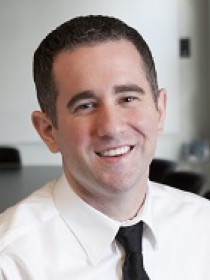
Nicholas Carnes
Assistant Professor of Public Policy and Political Science, Sanford School of Public Policy, Duke University
Chapter Member: North Carolina SSN
Areas of Expertise:
Connect with Nicholas
About Nicholas
Carnes’s research focuses on Congress, state and local legislatures, with a special focus on representation and political accountability, and the influence of legislators’ backgrounds on economic policy and inequalities of social class.
Contributions
How Government by the Privileged Distorts Economic Policy
Key Findings Brief,
How Government by the Privileged Distorts Democracies
Key Findings Brief,
The Cash Ceiling
Memo,
Are Politicians Prejudiced against the Poor?
Basic Facts Brief,
In the News
Nicholas Carnes quoted on the paths that the members of the House of Representatives took to Congress by Sahil Chinoy and Jessia Ma, "How Every Member Got to Congress" The New York Times, January 26, 2019.
"Working-Class People are Underrepresented in Politics. The Problem isn’t Voters.," Nicholas Carnes, Vox, October 24, 2018.
Nicholas Carnes quoted by Vale Lewis, "Professor Examines Causes of Socioeconomic Inequality among Elected Officisls" Cornell Sun, February 28, 2018.
Nicholas Carnes's research on , "Roseanne Barr Reinforces Myth that Working-Class Voters Elected Trump," Washington Post, January 12, 2018.
"It’s Time to Bust the Myth: Most Trump Voters Were Not Working Class.," Nicholas Carnes (with ), The Washington Post, June 5, 2017.
Nicholas Carnes quoted on expanding socioeconomic representation in government by Nathan Collins, "Few Blue-Collar Americans Hold Office, and the Reason is Not Low Pay" Pacific Standard, January 5, 2017.
Nicholas Carnes quoted on outsized influences on American politics by Sean McElwee and Roberta Barnett, "The Real Masters of the Universe: The Astounding Influence Lawyers Have on U.S. Government and Policy" Salon, June 12, 2016.
Nicholas Carnes quoted on women in office by Matthew Yglesias, "A Hillary Clinton Presidency Will Greatly Boost Women's Representation in Politics, with Big Policy Consequences" Vox, June 6, 2016.
Nicholas Carnes quoted on the shortage of people from the working class in American legislatures by Lee Drutman, "What Ted Cruz's Goldman Sachs Loan Tells Us about Running for Congress" Vox, January 14, 2016.
"Scott Walker Didn’t Finish College. Would That Make Him a Bad President?," Nicholas Carnes (with ), Politico, July 8, 2015.
Nicholas Carnes's research on whether a candidate's background influences policy positions (with Meredith Sadin) discussed by , "Why Joni Ernst Talked about Her Tough Upbringing," New York Times, January 20, 2015.
Nicholas Carnes quoted on the wealth of elected officials by Toluse Olorunnipa, "Rich Guys Running for Office Struggle with Voters in Land of Frozen Wages" Bloomberg, November 3, 2014.
"The Class War in American Politics is Over. The Rich Won.," Nicholas Carnes, Vox, September 3, 2014.
"Of Course the U.S. is an 'Oligarchy' - We Keep Electing the Rich," Nicholas Carnes, Talking Points Memo, April 28, 2014.
"Millionaries Run Our Government. Here's Why That Matters," Nicholas Carnes, The Monkey Cage, Washington Post, January 7, 2014.
"How Poorer Politicians Can Shatter the Cash Ceiling," Nicholas Carnes, Bangor Daily News, October 1, 2013.
Nicholas Carnes's research on income inequality between U.S. representatives and their constitutents discussed by , "‘If the Millionaires’ Party Ever Gets Its Act Together, Watch Out’," The Washington Post, May 6, 2013.
Nicholas Carnes's research on the effect of inequalities in the class composition of legislatures discussed by , "Growing Wealth Widens Distance between Lawmakers and Constituents," The Washington Post, December 26, 2011.
Nicholas Carnes's research on class and politics discussed by , "What a Politician’s Former Job Can Tell You," The Washington Post, September 16, 2011.
Nicholas Carnes's research on the effects of inequalities in the class composition of legislatures discussed by , "Social Status and How the Elected Vote," New York Times’ FiveThirtyEight blog, September 12, 2011.
Publications
"Does Paying Politicians More Promote Economic Diversity in Legislatures?," (with ), Midwest Political Science Association, April 2015.
Argues that paying higher salaries to elected officials encourages more white-collar professionals, rather than more blue-collar workers, to run for office.
"White-Collar Government: The Hidden Role of Class in Economic Policy Making" (Chicago University Press, 2013).
Looks at whether the social class divide between citizens and their representatives matter. Argues that legislators’ socioeconomic backgrounds have a profound impact on both how they view issues and the choices they make in office.
"Does the Numerical Underrepresentation of the Working Class in Congress Matter?" Legislative Studies Quarterly 37, no. 1 (2012).
Documents that members of Congress from different classes vote differently on economic issues in ways that mirror class-based differences in mass opinion. The shortage of lawmakers from the working class biases economic policy voting in Congress in favor of the interests of the upper class.
"By the Upper Class, for the Upper Class? Representational Inequality and Economic Policymaking in the United States," Ph.D. dissertation, Princeton University, August 31, 2011.
Shows that the shortage of people from the working class in public office has serious consequences. Like ordinary Americans, legislators from different classes tend to think, vote, and advocate differently on economic issues. In the aggregate, tax policies are more regressive, business regulations are more lax, redistributive policies are less generous, and protections for workers are leaner than they would be if the working class held its fair share of political offices.